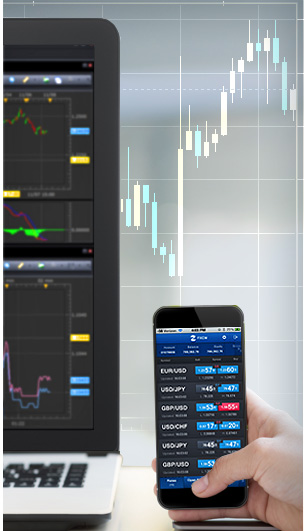
BEST TRADING PLATFORM
Popular searches:
Forex Trading Platforms
FXCM offers access to many powerful forex trading platforms through your UK FXCM account.
COMPARE PLATFORMS
What kind of trader are you? With this many options, you can find the best platform for you.
FXCM APPS
Browse hundreds of downloadable apps, like indicators and strategies, for Trading Station and MT4.
NINJATRADER
Trade forex alongside futures and stocks from other brokers, all on a single, advanced platform.
ZULUTRADE
Discover peer‑to‑peer auto‑trading that lets you subscribe to signals from other spread betters.
Featured Platforms
FXCM is an award-winning brokerage firm specialising in the provision of forex market access. Service to more than 130,000 active trading accounts and £2.8 trillion in annual trading volume have made FXCM an industry leader.
Four unique software trading platforms are available to customers interested in forex and CFD trading. MetaTrader 4 (MT4), NinjaTrader, Trading Station and ZuluTrade offer individuals unique functionality coupled with FXCM’s superior trade execution.
The platforms supported by FXCM cater to the needs of the individual trader, regardless of experience level or trading style:

Trading Station:
Trading Station is FXCM’s proprietary platform, and it includes multiple order types, advanced charting applications and a selection of preloaded indicators. Options for trade automation and strategy development are available, featuring backtesting and optimization capabilities. Market access through Trading Station is available via download, web or mobile device.
Trading Station is FXCM’s proprietary platform, and it includes multiple order types, advanced charting applications and a selection of preloaded indicators. Options for trade automation and strategy development are available, featuring backtesting and optimization capabilities. Market access through Trading Station is available via download, web or mobile device.
NinjaTrader:
NinjaTrader supports access to forex, futures and equities markets. The platform specialises in custom system development through provision of their standardised Strategy Builder and proprietary NinjaScript programming language. For live trading, the Market Analyser is a fully customisable spreadsheet updated in real-time. After the trading session, the Market Replay function allows traders to revisit the market and practice trade execution and management.
NinjaTrader supports access to forex, futures and equities markets. The platform specialises in custom system development through provision of their standardised Strategy Builder and proprietary NinjaScript programming language. For live trading, the Market Analyser is a fully customisable spreadsheet updated in real-time. After the trading session, the Market Replay function allows traders to revisit the market and practice trade execution and management.
MetaTrader 4 (MT4):
MT4 is an industry leading platform, supporting market access for forex, futures and CFDs. Interactive charts, multiple order types and advanced analytics make MT4 one of the most popular platforms for forex. With the availability of 30 built-in indicators in addition to more than 2,000 free custom indicators and 700 for purchase, MT4 includes an abundance of technical tools. FXCM offers MT4 users free Virtual Private Server (VPS) hosting as well as programming services for trade automation via the Expert Advisors application.
MT4 is an industry leading platform, supporting market access for forex, futures and CFDs. Interactive charts, multiple order types and advanced analytics make MT4 one of the most popular platforms for forex. With the availability of 30 built-in indicators in addition to more than 2,000 free custom indicators and 700 for purchase, MT4 includes an abundance of technical tools. FXCM offers MT4 users free Virtual Private Server (VPS) hosting as well as programming services for trade automation via the Expert Advisors application.
ZuluTrade:
ZuluTrade is a “peer-to-peer” platform that caters to individuals looking to adopt an automated approach. It offers subscription options to custom-built strategies developed by independent traders around the globe. Hundreds of strategies are available, as well as a sorting function and risk management application.
ZuluTrade is a “peer-to-peer” platform that caters to individuals looking to adopt an automated approach. It offers subscription options to custom-built strategies developed by independent traders around the globe. Hundreds of strategies are available, as well as a sorting function and risk management application.




